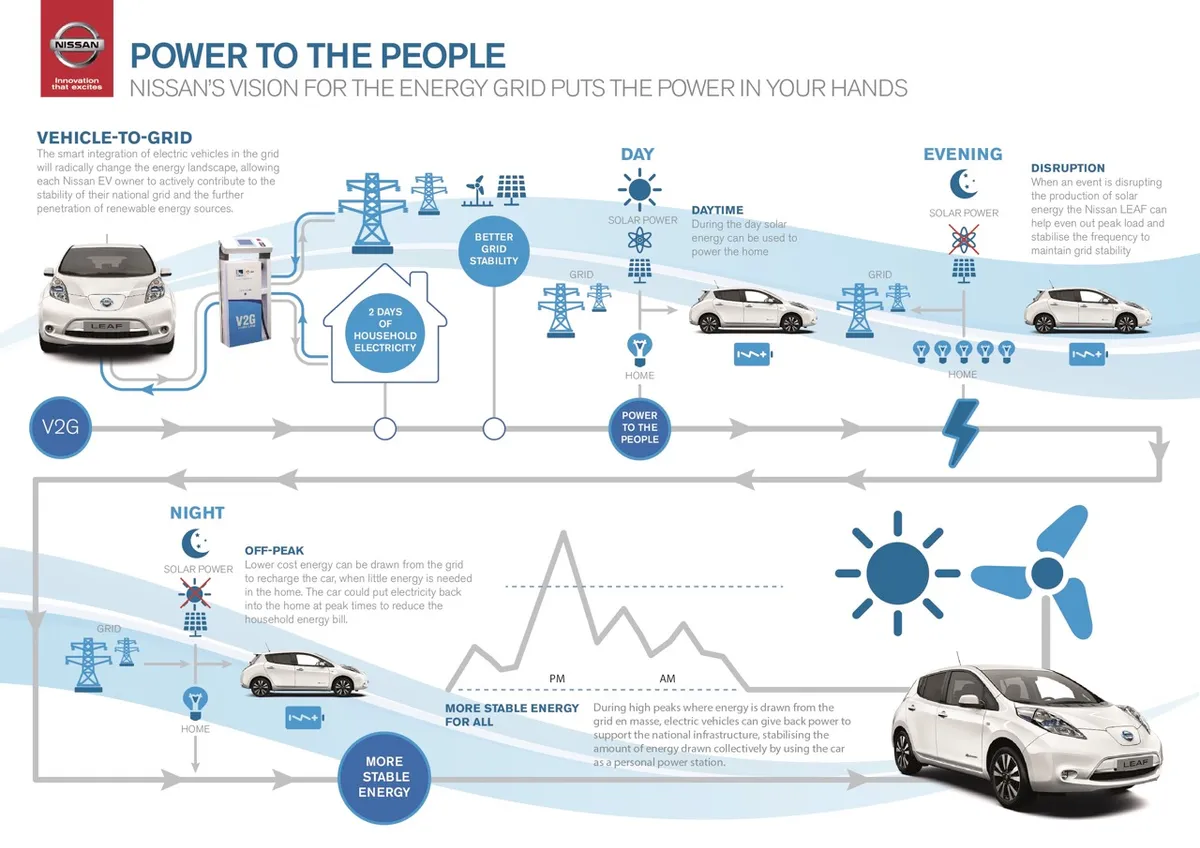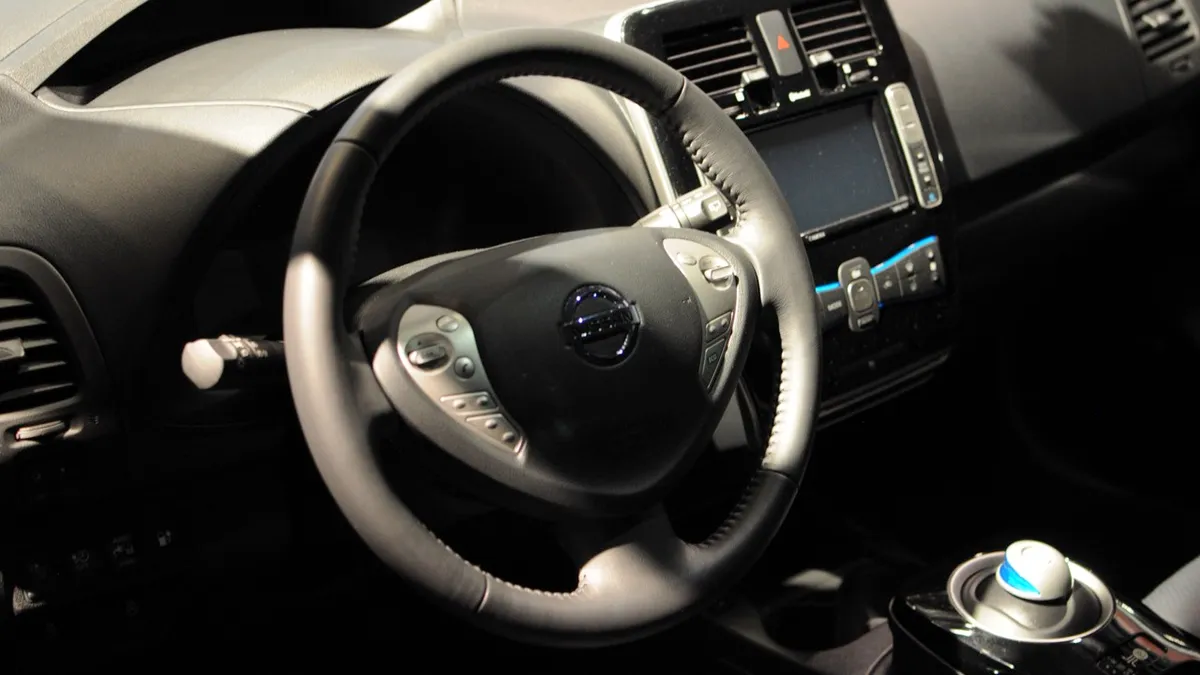Electric cars are far from mainstream at the moment; when you see one pass on the road your head is turned out of surprise more than anything else. But the car industry is changing fast and Nissan are betting the Nissan LEAF will be the one to lead the charge. We caught up with Nissan at MWC16, where they unboxed the latest model of LEAF, talked to us about howelectric vehicles(EVs) are going to power your home, and the future of autonomous driving.
Nissan LEAF unboxed
Cars are not the first things you think about when you get to the biggest mobile communications exhibition in the world. Unsurprisingly, Mobile World Congress isfull of phonesand other associated bits of tech like VR headsets, but EVs are a bit different to cars using your run-of-the-mill internal combustion engine – they are completely connected to theInternet of Things. That’s why the new Nissan LEAF was ‘unboxed’ like a smartphone at the event.
Like any phone these days it is only as good as its apps, and the updated NissanConnect EV App was the star of the show, containing a dizzying array of features that would make your Samsung Galaxy weep. Want to know how many more miles you’ve got in your batteries? The app can tell you that before you leave the house, and point you to the nearest charging station if you'rerunning out of juice on the road. It’ll help you find your LEAF in a busy car park and also warm up the inside so you can be toasty warm when you get in. It’s a pretty smart way of using all the benefits that come with the car being completely connected.
“In a fully connected, fully mobile world, in-vehicle connectivity is an absolute must for today’s drivers,” says Gareth Dunsmore, Director of Electric Vehicles for Nissan Europe.
Given the limited capacity of the batteries compared to petrol-powered cars, EV drivers are prone to getrange anxiety, the dread we have all felt when the red light starts flashing on your petrol gauge. The new Nissan LEAF comes with a beefier 30kWh battery, which promises to extend the range of the car to around 155 miles, up by 26 per cent. That should cover the daily commute with plenty of energy left in the batteries, which you cantake full advantage of when you are parked up at home.
Vehicle-to-grid
Transportation contributes nearly 23 per cent of all energy-related greenhouse gases and this is expected to rise to up to 50 per cent if no action is taken onclimate change. That is why theParis Declaration on Electro-Mobility and Climate Changefrom the COP21 climate change conference set a target of 35 per cent of new cars sold to be EVs by 2030 if global warming is to remain below 2 degrees. Although government incentives have helped fuel the double-digit growth in electric car sales in the UK, further action needs to be taken to hitthis target, and Nissan hopes that theirVehicle 2 Grid system(V2G) will help change public perception of EVs.
“Climate change and affordability are not disconnected,” says Francesco Giacalone, EU product manager for EVs at Nissan. “An electric car contains as much energy as the average household uses in two to three days. Change is going to come when the customer realises they can use this energy for powering the house”

This is not the first time we have seen the electric car industry make moves to provide stored energy for the home, theTesla Powerwallnotablygrabbing headlines in 2015, but Nissan's is the first to take the power directly from the car.
The V2G system kicks in when you plug in a LEAF when parked up at home. During peak hours the electric car will feed energy into the homes, powering your energy draining-devices like the TV or toaster, and charge itself at night when energy prices are cheaper. This enables the car to reduce the owner’s overall energy costs, and balance the draw of energy from the grid, a big boost for making renewable more manageable and affordable. In fact any excess energy available can even be sold back to the grid, reducing costs further.
Already being trialled in Denmark, the system is planned to roll out across Germany and the Netherlands in the near future.
The future of autonomous vehicles

Electric cars are one thing, but autonomous vehicles are the hot topic on everybody’s lips at the moment. Barely a week goes by withoutGoogle’sself-driving car hitting the headlines or another rumour about the mysteriousApple car, but although we are yet to see them on our roads, most major car manufacturers have got their fingers in the autonomous car pie. Nissan is no different.
The company says they are atIntelligent Drive Stage 1, where their cars are still learning the way of the road. They currently have more than 200,000 EVs on the road feeding data back and are using it to follow the Japanese philosophy ofKaizen (small improvements), continuously updating the car’s drive and efficiency over the air. Thisdata will be used to develop Nissan'sfuture generations ofautonomous carsand build the technology to help themdeal with obstaclesdriving on public roads throws up.
“The biggest problems we have in the industry are the maturity of the technology, the infrastructure and the legislation,” says Giacalone. “The technology is there already and we could have cars on the road in five years. The challenge is the infrastructure and the legislation.”
Follow Science Focus onTwitter,Facebook, Instagramand Flipboard